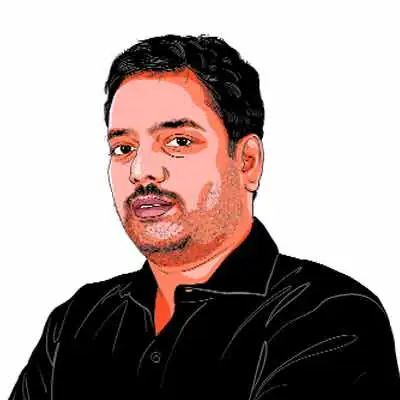Opinion Unblocking the roads
In a casual conversation about Kamal Naths recent initiatives in the roads sector,a senior government official pointed out an interesting factoid to me.
In a casual conversation about Kamal Naths recent initiatives in the roads sector,a senior government official pointed out an interesting factoid to me. It is surprising,he noted,that the highways development programme does not come under the purview of the prime ministers Delivery Monitoring Unit. The DMU,set up a month after the UPA-II returned to power in June this year,monitors what the government terms flagship programmes,iconic projects and new initiatives. From 101,these have been reduced to a select menu of 18 items of high visibility and high impact,which,fortunately or unfortunately,does not include the roads sector.
You could expect Kamal Nath,the individual that he is,to create a buzz in a sector that has been dormant for almost two years. Two big irritants investment climate and inefficient leadership plagued Indias highways,which figured prominently in the economic agenda of the NDA government. Besides many other reform initiatives,the NDA left an indelible imprint on the countrys physical infrastructure through its roads both highways and gram sadak programme. But Planning Commission-induced rigidities in award of contracts and T.R.Baalus lack of interest during his tenure as roads minister in the past five years marred investor interest,led to litigations and stalled progress. The global economic meltdown only worsened the situation and brought road-building to a standstill.
Indeed,the ministry has raised expectations by setting for itself a lofty target of building 20 kilometers a day. The minister has worked around the bureaucracy to correct the bidding procedure. The bid documents were largely conceived in the Planning Commission. With good intentions,it did standardise the request for proposal,request for qualification and the model concession agreement documents. But in a country like ours,with many geographical peculiarities and region-specific constraints,standardisation resulted in rigidities. Again,in limiting the number of companies that can compete for projects,the Plan panels intention was to filter the process and avoid frivolous and non-serious bids. But this led to genuine complaints by the industry that a select few will end up bagging all projects. Besides these,there were some irritants too. One such is the conflict of interest clause that is absurd. For instance,if HDFC Mutual Fund picked up a 1 per cent stake in GMR and GVK,these two companies cannot bid for the same project since it resulted in conflict of interest.
After a few meetings with stakeholders,Kamal Nath got the prime minister to appoint a committee chaired by none other than a member of the Planning Commission (B.K.Chaturvedi) itself to suggest ways to revitalise the highways and roads sector. The committee recommended doing away with all rigidities in the bid documents. Kamal Nath interacted very closely with the committee members,got his point across,even as he reinforced publicly the fact that it was a PM-appointed committee. The Cabinet Committee on Infrastructure accepted the report in toto. Sector participants are relieved. An official closely involved in the roads sector summed up the earlier bid documents and process as: The best was becoming the enemy of the good.
Looking ahead,is the 20-km a day target feasible? Fortunately,for Kamal Nath,the prime ministers DMU is not monitoring it. So,he is not strictly in the radar. As a politician,he has followed the general approach that when you exert huge pressure on the system,it will deliver. So,he has announced an array of projects thousands of kilometres of expressways every year,mega road projects,special economic zones along the expressways,etc. Even if half the target is achieved,it will be more than twice the road length the government managed to build in the past five years.
The policy issues are in place and the target is set. This is but only half the job done. His single-minded pursuit now must be to improve governance the biggest hurdle in infrastructure development especially when he is trying to rope in big-ticket funding from multilateral institutions such as the World Bank. There are multiple parts to governance. The first part,of course,is the process itself: the manner in which the government goes about roping in private players,particularly the global ones. Local players may still cope up with the frequent changes in bidding documents,but changing goalposts midway during the bidding process will put off new entrants and foreign players. So,while Kamal Nath has wrangled the authority to make changes to RFPs and RFQs,he needs to be judicious in exercising it.
The second part relates to the time period during which the project is executed. There is still lack of clarity on costs for the road developer with changes in the design and scope of the work undertaken. It still takes a long time to obtain local permits and corruption at panchayat level is rampant. Further,developers can benefit from duty exemptions on equipment imported for only one stretch of land. If for some reason,the developer uses the same equipment for building another road,the taxman can put him on notice. These are small issues,but have considerable nuisance value. It is for the implementing agency the National Highways Authority of India to get it resolved. Kamal Nath has empowered NHAI officers by decentralising decision-making,set up village level units to facilitate land acquisition and has even allowed lateral recruitment in NHAI.
Finally,there is need for good governance even post-construction when it comes to toll collection. Differences in interpretation have in the past led to large number of litigation. Hundreds of cases in arbitration never get amicably resolved and land up in courts. The NHAI is often unwilling to settle cases in arbitration because of fear of the Comptroller and Auditor General. The NHAI general manager would rather let the files gather dust or opt for legal recourse than try to settle the case.
Kamal Nath can use his clout with Robert Zoellick aided by his negotiation skills and WTO association to get funding. But progress is contingent on good governance. The roads minister should know the devil is in the details.
pv.iyer@expressindia.com





